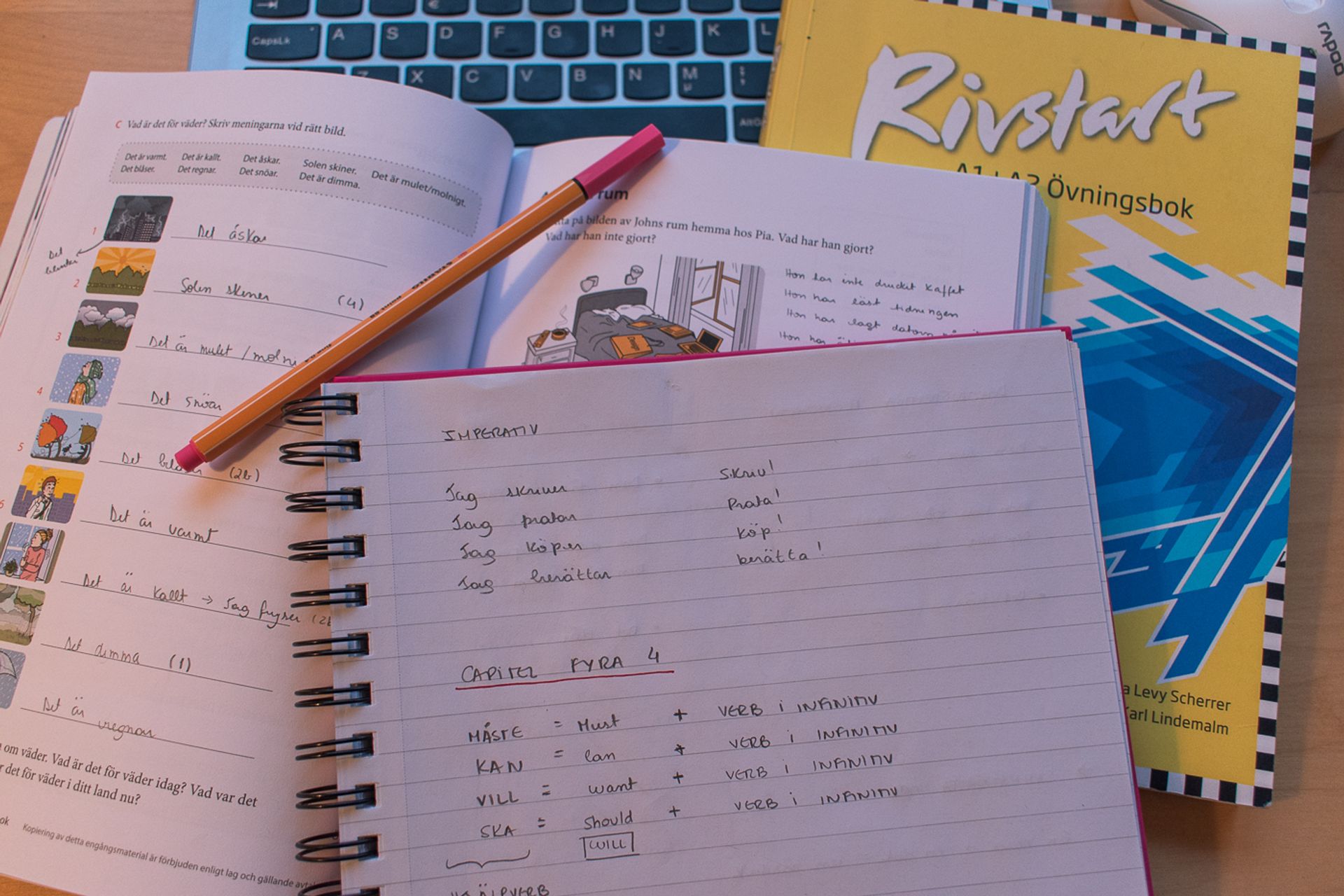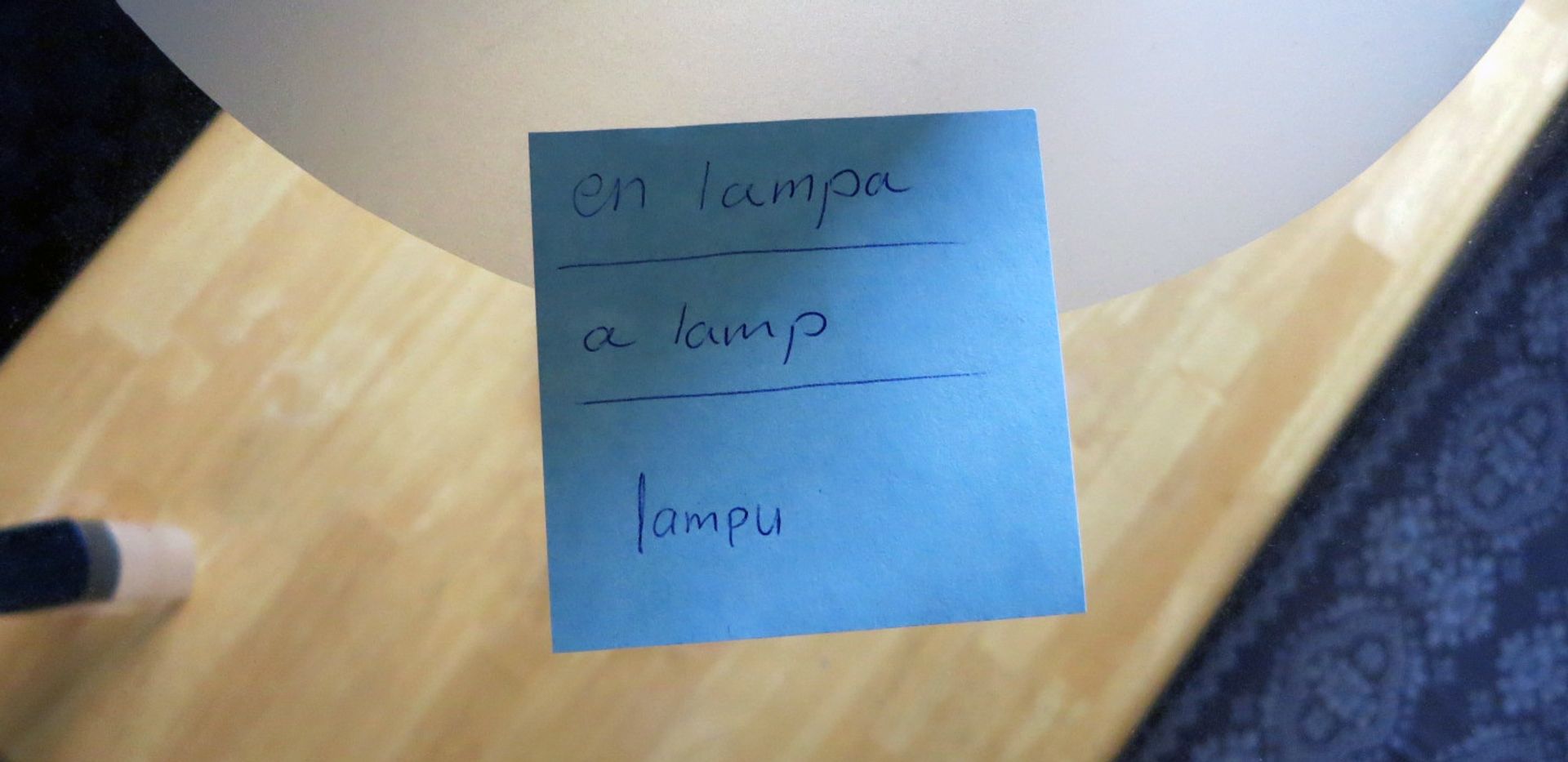
Written by Emma
03 Mar 2018
Beyond attending formal Swedish classes and telling the cashier “nej” (no) to a “kvitto” (receipt), sometimes it can be hard to see on a daily basis where you can practice your Swedish language skills. With Swedes being the best non-native speakers of English in the world, and with many international students communicating in English on their Master’s courses, it is easy to see how you can get into a rhythm of speaking English most of the time. Sania’s helpful post explored the ways in which you can learn Swedish at home (very helpful during the winter months here….trust me). But seeing as spring is (perhaps, very tentatively) on its way, how can you help better your Swedish skills when you’re out and about?
Exercise Classes in Swedish
The gym I attend in Uppsala is very thoughtful of its patrons, and holds a few select exercise classes in English every week. However, since I have grasped the basics of Swedish (so I think I could follow a class in another language without misinterpreting and causing myself injury), I have decided to go to the regular Swedish-language ones instead. It has helped with reinforcing and learning the words for different body parts, numbers, time and the weather (it will always be the introductory topic the spin instructor, and all Swedes, talk about at the beginning of a class).
Working in Swedish – Student Nations
Peculiar to Lund and Uppsala, students nations are organisations run by students, for students. Because of this, if you’re interested in working at the nations at any point, you’re almost definitely guaranteed the ability to. Whether that’s working the bar, a café or one of the club nights, there are many opportunities for you to extend yourself in nation life. And in this, there is the potential to try and do some of it in Swedish. For the first time last week I worked the bar at a club night at my nation, Östgöta, and given the fact that most orders were simply “en öl” (a beer) or “två fish shots” (two fish shots – Fisherman’s Friends shots, don’t ask, they’re gross), it meant working in Swedish wasn’t too difficult a feat. All it required me to do was repeat back to the customer their order to clarify if I had interpreted their (slightly slurring) requests correctly, and then give them their cost total in Swedish. So it was good practice both in numbers, and in the contents of a Swedish bar…
Volunteering in Swedish
When I moved to Uppsala, I knew the area I wanted to look into for my thesis would benefit from some voluntary work. The group who I volunteer with focus on teaching Swedish, and though this isn’t explicitly what my thesis pertains to, the fact that their primary focus is this is very helpful for me as well. The students who I work with are all leaps and bounds ahead of me in their Swedish, but are very understanding and helpful of me when I try to stumble through a sentence and have a conversation with them in Swedish. We speak Swedish the whole time, so in this scenario I have no crutch of English to fall back on, which has been a fantastic help. I actually think this experience is the thing that has helped me most in my Swedish acquisition since I’ve moved here. Now that I’m a few months in, I’m leading warm-up games for the group in Swedish. Whilst it’s daunting – and I definitely don’t do it at all correctly all the time (read: I never do it correctly) – it’s been a great experience to push myself and help me realise I can already improvise with the Swedish language on-the-spot if I need to.
Change the language on your devices
Who are we all kidding, we’re addicted to our phones and look at them significantly more than most peoples’ faces. So, let’s put that time to good use. Changing the language on your phone helps you absorb even more Swedish words simply by the fact that we default to looking at our phones so much of the time anyway! These small glances will result in a kind of osmosis, where the Swedish words just seep into your brain…
Consuming Swedish culture
Andrés has already gone into this at some length, so I’ll try not to step on his toes too much, but there are multiple ways in which consuming Swedish culture when you’re out and about can help with your language acquisition. In the mornings when I’m having breakfast, I listen to Sverigesradio. Not only does it feel like a throwback to being a kid and listening to the radio with my family in the mornings, but it is very helpful for my Swedish language skills and knowledge of what is going on in current affairs in Sweden. With there being an election in Sweden this year, I am hearing and able to translate little bits and pieces to do with that, which makes me really feel a part of the culture. If you know a little bit about what the presenters are talking about (e.g the other day “Prince Harry” and “Meghan Markle” were words I could very clearly decipher), you don’t have to worry about piecing together the actual story, and focus more on the word-by-word translation.
Last month I went to a Swedish play at Uppsala stadsteater (city theatre). A tip: if you go to see Swedish theatre, go to something which is very active or slapstick – definitely pick a comedy over a tragedy. It was a struggle to keep up with the pace of the language, and I really could translate only about 2% of the whole show, but because it was all about pranks and things falling over and people making funny mistakes, I could completely understand the underlying plot, so I could at least try and pin some of the words to it. If you go and see an intense Strindberg play…you may struggle more.
So there you have it! What sort of things are you thinking of doing to improve your Swedish language? Feel free to email me if you have any questions!




